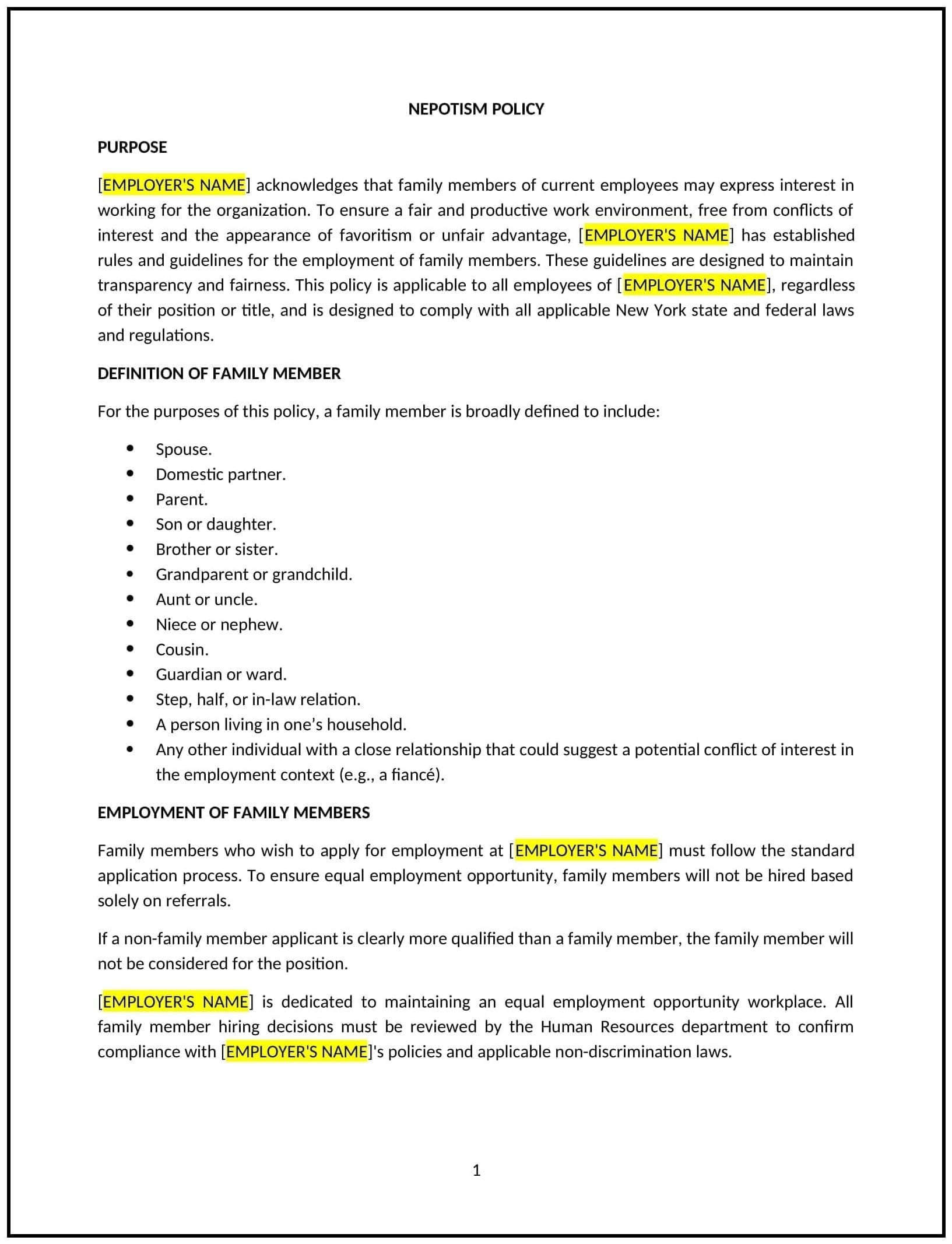Got contracts to review? While you're here for policies, let Cobrief make contract review effortless—start your free review now.

Customize this template for free
Nepotism policy (New York)
This nepotism policy is designed to help New York businesses establish clear guidelines for managing workplace relationships involving family members to prevent conflicts of interest, favoritism, or perceptions of unfair treatment. Whether businesses are addressing hiring practices, promotions, or reporting structures, this template provides a structured approach to maintaining fairness and professionalism.
By adopting this template, businesses can foster a transparent work environment, promote equal opportunities, and minimize workplace disruptions.
How to use this nepotism policy (New York)
- Define nepotism: Clearly explain what constitutes nepotism, such as hiring, promoting, or showing preferential treatment to family members.
- Address hiring practices: Outline procedures for recruiting and onboarding family members to ensure fairness and compliance with equal employment opportunity laws.
- Establish reporting structures: Specify rules to prevent family members from working in direct supervisory or reporting relationships.
- Include disclosure requirements: Require employees to disclose family relationships with current or prospective colleagues to identify potential conflicts of interest.
- Detail consequences: Provide guidelines for addressing violations of the policy, including potential disciplinary actions or adjustments to reporting relationships.
Benefits of using a nepotism policy (New York)
This policy offers several benefits for New York businesses:
- Promotes fairness: Clear guidelines ensure all employees are treated equitably, regardless of personal relationships.
- Reduces conflicts of interest: Addressing potential nepotism minimizes bias in hiring, promotions, and decision-making.
- Enhances workplace morale: A transparent policy fosters trust and reduces perceptions of favoritism or unfair advantages.
- Supports compliance: Aligning with New York and federal anti-discrimination laws ensures fair and lawful employment practices.
- Protects the business’s reputation: Preventing nepotism safeguards the business’s image as a fair and professional employer.
Tips for using this nepotism policy (New York)
- Communicate the policy: Share the policy with employees during onboarding and through handbooks to ensure understanding and compliance.
- Encourage early disclosure: Provide a safe and confidential process for employees to disclose relationships to avoid potential conflicts.
- Train managers: Equip managers with tools to address nepotism-related concerns and enforce the policy fairly.
- Monitor compliance: Periodically review hiring and promotion practices to ensure adherence to the policy.
- Update regularly: Revise the policy to reflect changes in workplace practices, employee needs, or New York employment laws.